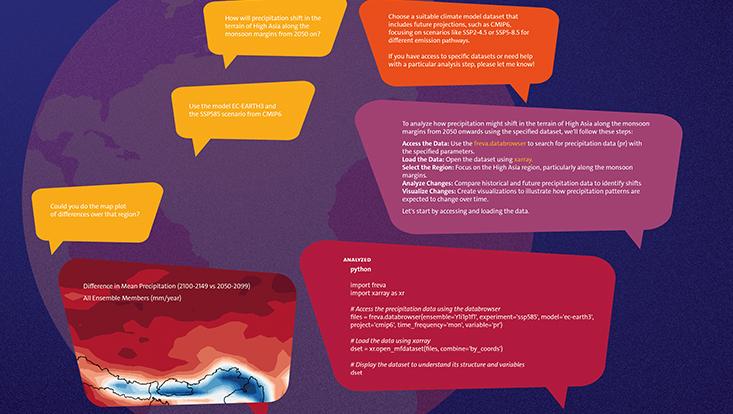JPMorgan’s Analysis: Minimal Effects of U.S. Tariffs on South Africa’s Financial Landscape
In a recent comprehensive study, JPMorgan examined the potential ramifications of U.S. tariff policies on the global economy, with a particular emphasis on South Africa’s financial markets. Despite widespread concerns about emerging economies being vulnerable to escalating trade tensions, JPMorgan’s insights suggest that South Africa is likely to face less pronounced impacts than initially anticipated. This evaluation comes at a time when South Africa is navigating its own economic challenges while adapting to shifting global trading dynamics. As international focus remains fixed on developments in U.S. tariff strategies, this report sheds light on their probable influence within South African markets.
South African Market Durability Amidst Rising Trade Barriers
The JPMorgan report highlights that direct repercussions from American tariffs on South African financial assets are expected to remain relatively moderate. Several key factors underpin this resilience:
- Varied Export Portfolio: South Africa benefits from exporting a wide array of products including minerals, agricultural commodities, and manufactured goods, reducing overdependence on any single sector or market.
- Robust Trade Networks: Established relationships within BRICS nations and other emerging markets provide alternative export destinations beyond traditional Western economies.
- Sound Economic Fundamentals: Prudent fiscal management and stable monetary policies act as cushions against external shocks and market volatility.
The analysis further notes that commodity exports have remained steady despite tariff uncertainties—an essential factor sustaining foreign exchange earnings vital for economic stability. Moreover, currency movements have been relatively contained; the rand has demonstrated notable steadiness even amid broader disruptions in global trade (source). Additionally, regulatory measures designed to boost investor confidence continue to reinforce market robustness during these unpredictable times.
Tackling Global Trade Challenges: Insights into Asset Stability in Emerging Markets
The escalation of international trade disputes often triggers volatility across emerging economies; however, JPMorgan identifies several reasons why South African assets may demonstrate greater stability compared to peers:
- Diversified Geographic Reach: By maintaining export ties not only with Europe and North America but also expanding into Asia and Latin America, dependency risks are mitigated effectively.
- Sustained Demand for Key Commodities: Sectors such as mining—particularly platinum group metals—and agriculture continue benefiting from consistent global demand trends despite protectionist barriers elsewhere.
- Sustained Inflows of Foreign Direct Investment (FDI): Capital directed toward infrastructure development and technological innovation supports long-term growth prospects independent of short-term trade disruptions.
The secondary effects stemming from tariffs—such as shifts in consumer prices or adjustments in capital flows—are currently unlikely to significantly undermine investor confidence. Sectoral analysis reveals mixed sensitivities but overall positive growth trajectories prevail across industries influenced by international commerce changes:
| Industry Sector | Sensitivity Rating (1–10) | Growth Forecast & Key Drivers |
|---|---|---|
| Mines & Mineral Extraction | 4 | Presents strong expansion opportunities fueled by rising demand for battery-related metals like lithium and cobalt critical for electric vehicle production worldwide. |
| Agricultural Production & Exports | 5 | A steady moderate growth outlook supported by increasing emphasis on global food security initiatives amid climate change concerns. |
| Chemical & Manufacturing Industries | 6 td >< td >Faces more constrained growth prospects due partly to supply chain realignments triggered by new tariff regimes affecting raw material sourcing.< / td > tr > |
Navigational Strategies for Investors Amid Tariff-Induced Market Fluctuations
Considering JPMorgan’s conclusion about limited direct impact yet ongoing uncertainty globally , investors should consider adopting diversified approaches focused primarily on risk reduction :
- < strong >Diversify Investment Portfolios :< / strong > Spreading investments across sectors such as technology innovation , renewable energy projects , agribusiness ventures helps minimize exposure tied exclusively to commodities vulnerable under evolving tariffs .< / li >
- < strong >Manage Currency Exposure :< / strong > Vigilant monitoring of rand exchange rate trends is essential since currency volatility can magnify asset value fluctuations when converted into foreign currencies .< / li >
- < strong >Prioritize Resilient Companies :< / strong > Focus investment choices toward firms exhibiting operational flexibility through local manufacturing capabilities or those well-positioned within reconfigured supply chains .< / li >
- < strong >Leverage Real-Time Analytics Tools :< / strong >Accessing current data regarding tariff updates enhances timely decision-making.
Utilizing analytical platforms likeAfrican Law & Business (ALB) further refines strategic investment planning.
li > ul >
A Strategic Outlook: Confidently Steering Through Economic Transitions
The detailed assessment provided by JPMorgan conveys measured optimism regarding how U.S.-imposed tariffs will shape financial instruments linked with South Africa’s economy going forward . While geopolitical tensions persist globally , intrinsic strengths embedded within domestic markets appear capable of absorbing considerable external pressures without precipitating major downturns . As policymakers refine regulatory frameworks aimed at enhancing investment security , both local stakeholders and international investors remain engaged closely.
In an era characterized by rapid transformations across worldwide trading systems , grasping subtle impacts—as outlined here—is crucial for developing resilient economic strategies tailored specifically toward emerging economies like South Africa.
Ultimately , this evaluation reinforces that although challenges arise amidst growing protectionism internationally , significant opportunities endure for those who navigate these complexities strategically through informed diversification combined with vigilant oversight.

